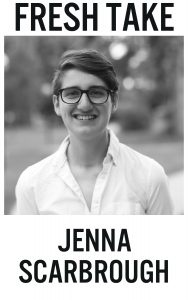 After another successful Faith, Reason and World Affairs Symposium, the planning committee announced today that next year’s event will focus on America and the Middle West.
After another successful Faith, Reason and World Affairs Symposium, the planning committee announced today that next year’s event will focus on America and the Middle West.
Sonja Wentling, Symposium planning committee co-chair, says she is very excited for the expansive amount of information next year’s theme will offer.
“Our goal is to get students excited about the topics we have selected,” Wentling said. “I know that sometimes it is difficult for students to feel engaged when learning about the Middle West, but this is a topic that hits close to home for a lot of people.”
The Middle West, more commonly known as the Midwest, consists of twelve states in the central region of the United States – if people actually want to find it on a map. Wentling chose this topic because she felt like Cobbers needed to learn far more about the place where most of them already live.
“You cannot become responsibly engaged in the world if you are not engaged in your homeland,” Wentling said. “The Middle West is the best place to learn about culture and such.”
The description for next year’s Symposium on Concordia’s website says the goal of the topic is to “deepen our understanding of the rich and diverse history of the cultures of the Middle West and its people.” The Symposium will ignore the oppression and destruction of indigenous communities already in the region, and will instead focus on the hardships that come with experiencing nine months of winter or needing to drive sixty miles to the nearest Target.
In lieu of next year’s events, Wentling’s co-chair Mike Bath says he has asked Concordia Dining Services to serve only traditional Middle Western foods for the day.
The salad bar will feature more than just lettuce, including Jell-O salad, cookie salad, pretzel salad, fruit salad, egg salad, ham salad, macaroni salad, potato salad, taco salad and more. The main entrees will consist of exotic foods such as tater tot hotdish and fried foods on a stick. For dessert, lefse.
Students will also have the opportunity to engage in traditional Middle Western practices. The first session is tentatively scheduled to be an hour of walking briskly around campus and asking, “How are you?” quickly enough that the questioner cannot hear the response. In this culture, the recipient can only respond with, “Good, how are you?” while quickly passing in the opposite direction.
Other events include an art display in the Cyrus M. Running Gallery, which holds a variety of Middle Western artifacts. Among these are a preserved snowball from the great blizzard of ’96, half an acre of corn and a rifle.
Making an event like this run smoothly is no easy task, especially when the co-chairs must practice their “Minnesota nice” skills on each other. Wentling says it is often difficult to get anything done. “We have become so engrossed in practicing our Middle Western culture that Dr. Bath and I spend most of our time offering to help one another out on a project,” Wentling said. “Next thing you know, we’ve wasted three hours trying to decide who should have the privilege of wearing the traditional Midwestern outfits of overalls and flannel.”
For Bath, planning next year’s Symposium comes with a different problem: preserving the true heritage of the Middle West.
“We are having difficulties trying to find speakers for the sessions, especially when areas like the Pacific Northwest have influenced this culture so much,” Bath said. “All the Norwegian Vikings have died off, I guess, so they’re no longer an option for speakers. All that’s left of the Vikings now is the football team. It’s truly a losing battle.”
Despite this, Bath says he wants next year’s event to feel as authentic as possible.
Can students really feel like they are experiencing the true Middle Western culture?
“You betcha,” Bath said.

